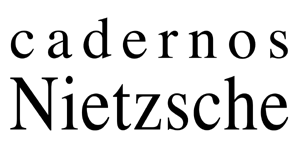Resumo em Português:
Resumo: Este artigo pretende enfrentar a figura nietzschiana do indivíduo soberano, explicitamente referida no livro Para a genealogia da moral. Esta referência, que certamente tem um vínculo profundo com toda a reflexão de Nietzsche, desde as “considerações extemporâneas” até o Zaratustra e além, não só nos permite questionar a concepção difundida do indivíduo em sua relação com o bem e o mal, como também com a moral em geral, mas manifesta uma compreensão da realidade tão profunda, na relação entre autonomia e ética, entre vida e verdade, que uma época de relativismo imperante, de niilismo não superado, não pode simplesmente ignorar.
Resumo em Inglês:
Abstract: This article intends to face Nietzschean figure of sovereign individual, as explicitly referred to in the text On the Genealogy of Morality. This reference, which certainly has a profound link with Nietzsche’s entire reflection from the “untimely meditations” to the Zarathustra and beyond, not only allows us to question the widespread conception of the individual in his relationship with good and evil, other then with morals in general, but manifests an understanding of reality so deep, in the relationship between autonomy and ethics, between life and truth, that an epoch of prevailing relativism, of nihilism not overcome, cannot simply ignore.
